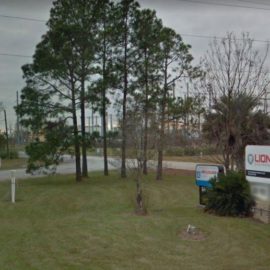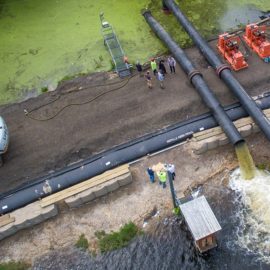Three members of our steering committee wrote letters to The Advocate in response to the newspaper’s editorial, “Welcome new investment in Louisiana’s petrochemical industry” (published Dec 22, 2020). The newspaper did not publish any of the letters, but you can read them here.
To the editor:
Your December 22 editorial about Mitsubishi’s and ExxonMobil’s plans to dramatically expand their petrochemical production in Louisiana with new and expanded facility construction asks the question “What’s not to like?”
Frankly, there’s plenty not to like. For one, your own dismissal of environmental and land use concerns as “glib” and “bordering on paranoia.” For another, your portrayal of the issue as a zero-sum game, where a robust business climate is made to seem incompatible with enforceable measures to protect the quality of our water, air, and soil from the inevitable byproducts of petrochemical production. That’s a recipe for avoidable public health and environmental damage that Louisiana can ill afford.
50 years ago, a bipartisan Congress passed the National Environmental Policy Act (signed by President Nixon) to create procedures that require identification and analysis of the adverse environmental impacts from proposed projects BEFORE their approval by public agencies. The point is to distinguish avoidable from unavoidable environmental impacts, require mitigation of the avoidable ones, and decide whether the unavoidable ones are too severe to allow and, if necessary, either require modification or disapproval of the projects. Responsible decision-making takes a hard look at the predictable consequences of necessary business development. Anything less is simply irresponsible.
Last August, Governor Edwards signed an Executive Order creating a Climate Initiatives Task Force. He recognized the economic imperative of supporting “Louisiana’s working coast” and made a commitment to “working with Louisiana businesses, industries, local communities, and civil society to reduce emissions through a suite of balanced policy solutions.” We’re losing our precious coast at a frighteningly fast rate. Mitsubishi and ExxonMobil are two of the wealthiest corporations on the planet. They can afford to be responsible stewards of the environment where they do business; we must require them to partner with us to do so.
Jonathan Sebastian Leo
Baton Rouge
Dear Editor,
Your editorial of 22 December lauding the two Petro-chemical plants stated and the economic benefit to the state was a bit shortsighted. The benefits came only through your note of the $100K salaries of the workers and you slighted over the taxes the communities would receive should they turn down the requests for tax avoidance by the plants. The communities should turn these requests down as the communities need the fiscal relief.
You also ignored the health and medical costs brought by the Petro-chemical industry. Death Alley or Cancer Alley is not called that just for fun. Cancer and lung diseases are common at levels far above other parts of the country much less the state. These diseases have been certified as coming from pollution from these types of plants. Yet you chose not to mention this.
You also slighted those who oppose these plants accusing us of not caring for the economy of the state. To the contrary, many of us do care for the economy of the state and see valuable tax dollars lost to tax free commercial plants and the states reliance on the Petro-chemical industry. Economic diversity is needed and should start now. Creating this divide between people only exasperates the divisions now in place.
In short, your support for these plants was short-sighted and failed to note all the effects which would be faced by the constructions favored. Nothing is one-sided and that is what you accomplished. Look at the multi-faceted aspects of all economic plants.
Sincerely,
George D. Bond, II
New Orleans
To the editor:
I was disappointed to see The Advocate uncritically endorse the concept of a Mitsubishi Chemical plant in Ascension Parish, as well as the expansion of ExxonMobil facilities in Baton Rouge.
You justify the developments as an “investment” in our state. But your reasoning is very selective, focusing only on jobs and salaries. There’s more to the picture. As retired Lieutenant General Russel L. Honoré is fond of asking, if the petrochemical industry is so good for business, why is Louisiana so poor?
We need to account for other factors, beyond jobs and salaries, to calculate the true economic reality of these proposed developments. A full accounting would include the degradation of land and sky, not to mention the long-term health impacts for the communities living in close proximity to the plants.
The word “economics” comes from old Latin and Greek roots meaning “management of the home.” The Earth is our home, but we have proven to be poor managers, as anyone who spends much time in Louisiana’s great outdoors can tell you.
Currently we glorify growth as the supreme value, without regard to such basics as quality of life or clean air and water. We know that our rapacious consumption of resources cannot continue indefinitely, and that our current trajectory is already leading to very grim outcomes.
Something has to change. We desperately need to develop an economics that measures the true cost and benefit of developments before we judge them as beneficial.
Bart Everson
New Orleans



